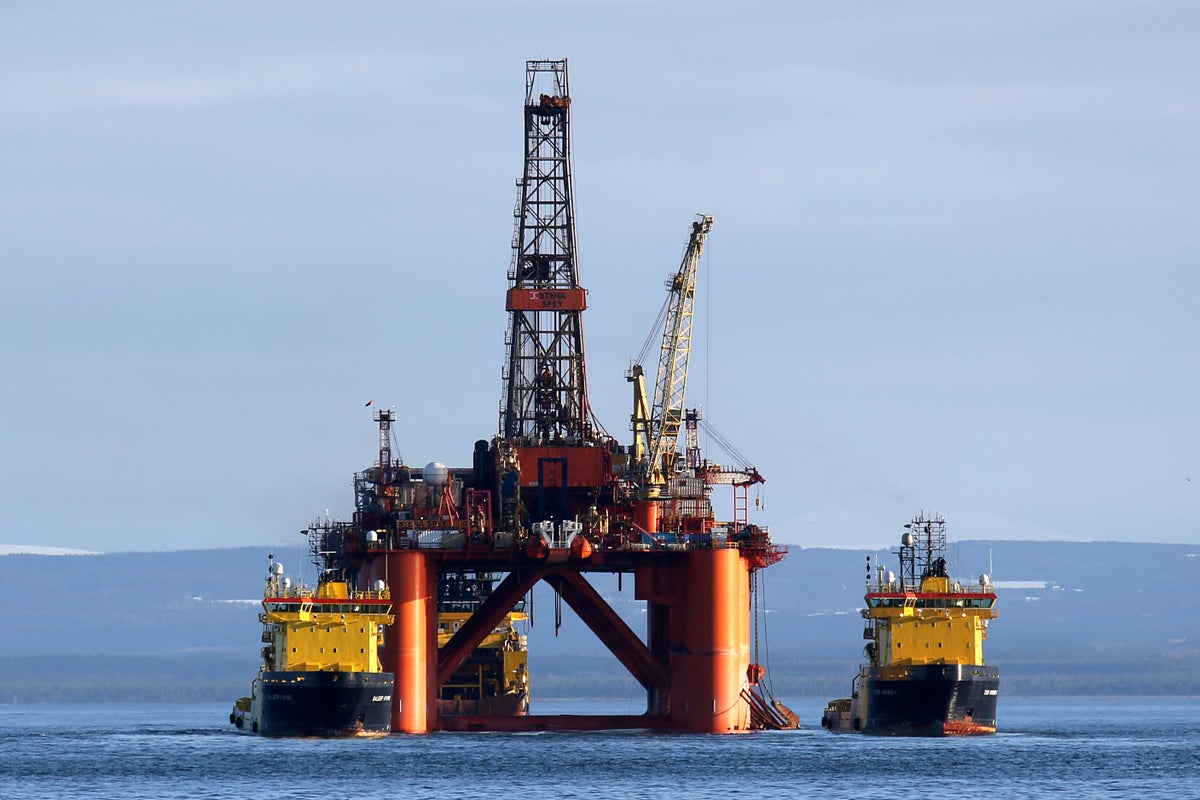
Oil from the controversial North Sea projects, including the much-debated Rosebank venture, will contribute to less than one per cent of the UK’s fuel needs by 2030, a new analysis has found.
The government’s claim of bolstering the UK’s energy security through new licenses “doesn’t stand up to scrutiny”, the research released by the non-profit Energy and Climate Intelligence Unit (ECIU) said on Monday.
The study says only one per cent of the oil generated from the new drilling licences issued for projects like Rosebank – Britain’s largest untapped oil field – would end up getting used in the UK by 2030.
Hence, it won’t make any significant difference to the energy prices in the UK.
“The reality is very little of the oil pumped from the North Sea is refined and sold on British soil, and even then the price is largely dictated by international markets,” professor Gavin Bridge, fellow of the Durham Energy Institute at Durham University, said.
“Most of the oil is extracted by private or foreign state-owned companies over which the Government has little control,” he added.
“The notion that more drilling on the continental shelf boosts our energy security doesn’t stand up to scrutiny.”
In response to a written parliamentary question last week, the government admitted that majority of the oil drilled from North Sea – around 80 per cent – will be sold on the international market rather than to UK consumers.
“It is not desirable to force private companies to ‘allocate’ oil and gas produced in the North Sea for domestic use,” it said.
ECIU says the new licenses are a “distraction” from policies that would have a “real, lasting impact on the UK’s energy independence.
Oil from new fields such as Rosebank will be traded internationally – as the government has admitted, this oil is not earmarked for the UK and it won’t make any real difference to UK prices.”— Dr Simon Cran-McGreehin, Head of Analysis at ECIU
Analysing government data on oil production, projections from the North Sea Transition Authority (NSTA) and oil demand, the ECIU study says oil extraction from UK waters is becoming “less and less important for UK energy independence and security”.
The analysis comes as the government was set to propose a new law in the Commons on Monday to call for new oil and gas licences on an annual basis instead of every five years.
The continued push from the Rishi Sunak government for extracting oil in the sensitive North Sea region has been under scrutiny for a long time, inviting backlash from climate experts, opposition and even conservative MPs.
Rosebank has faced strong opposition from environmental campaigners— (PA Wire)
Climate activists, including Greta Thunberg, demonstrated at several locations in London in October against the Rosebank project, which has the potential to produce 500m barrels of oil in its lifetime which, when burned, would emit as much carbon dioxide as running 56 coal-fired power stations for a year.
Two campaign groups, Greenpeace and Uplift, announced separate legal challenges to the proposal last, which are due to be heard early this year.
However, the government has been pushing through with its plans to grant companies to drill in the North Sea citing energy security concerns.
During an interview with the BBC on Saturday, Chancellor Jeremy Hunt said “even when we reach net zero in 2050 we will still get a significant proportion of our energy from fossil fuels, and domestic oil and gas is four times cleaner than imported oil and gas.”
His statement prompted a response from Piers Forster, the interim chair of the CCC tweeting: “Our earlier advice is still current. UK oil and gas consumption needs to fall by over 80 per cent to meet UK targets. This and Cop decision makes further licensing inconsistent with climate goals.”
In September prime minister Rishi Sunak said Rosebank would help prevent young people from growing up “dependent on foreign dictators” for energy security.
A Department for Energy Security and Net Zero spokesperson told PA news agency: “With energy markets becoming more unstable, it makes sense to make the most of our own homegrown advantages in the North Sea.
“That’s why we’re backing the UK’s oil and gas industry with annual licences, supporting 200,000 jobs and giving them certainty to invest in jobs here and unlock billions in tax for our own transition to clean energy.
“As a net importer of oil and gas, the UK increasingly produces less oil and gas than it uses. These new licences will not make us a net exporter or increase carbon emissions above our legally binding carbon budgets.”







